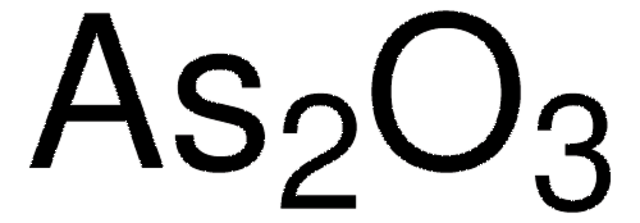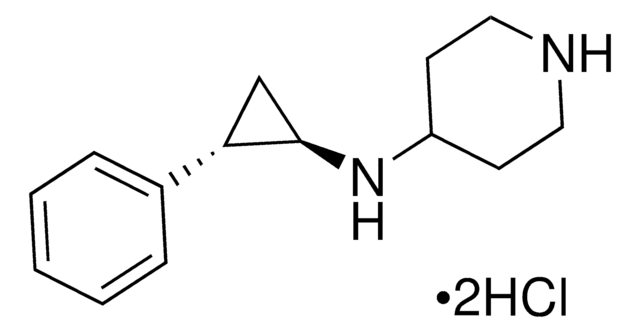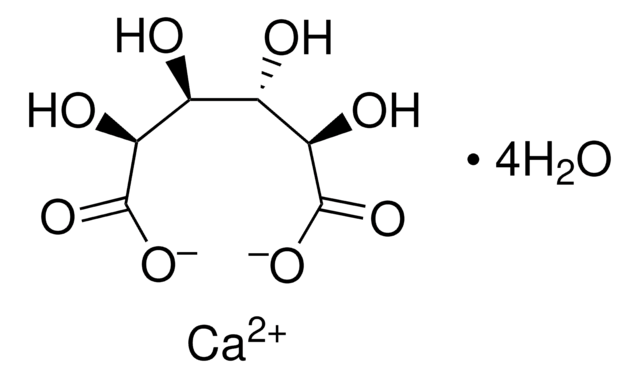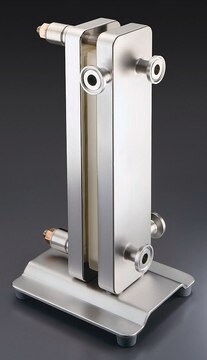01-6635
Arsenic(III) oxide
SAJ first grade, ≥99.0%
Synonym(s):
Arsenic trioxide, Arsenous acid
About This Item
Recommended Products
grade
SAJ first grade
vapor pressure
0.000001 hPa ( 66 °C)
Assay
≥99.0%
form
powder
availability
available only in Japan
SMILES string
O=[As]O[As]=O
InChI
1S/As2O3/c3-1-5-2-4
InChI key
IKWTVSLWAPBBKU-UHFFFAOYSA-N
Looking for similar products? Visit Product Comparison Guide
Signal Word
Danger
Hazard Statements
Precautionary Statements
Hazard Classifications
Acute Tox. 2 Oral - Aquatic Acute 1 - Aquatic Chronic 1 - Carc. 1A - Eye Dam. 1 - Skin Corr. 1B - STOT RE 1
Target Organs
Respiratory system,Cardio-vascular system,Gastrointestinal tract
Storage Class Code
6.1A - Combustible acute toxic Cat. 1 and 2 / very toxic hazardous materials
WGK
WGK 3
Flash Point(F)
Not applicable
Flash Point(C)
Not applicable
Choose from one of the most recent versions:
Certificates of Analysis (COA)
Don't see the Right Version?
If you require a particular version, you can look up a specific certificate by the Lot or Batch number.
Already Own This Product?
Find documentation for the products that you have recently purchased in the Document Library.
Our team of scientists has experience in all areas of research including Life Science, Material Science, Chemical Synthesis, Chromatography, Analytical and many others.
Contact Technical Service









